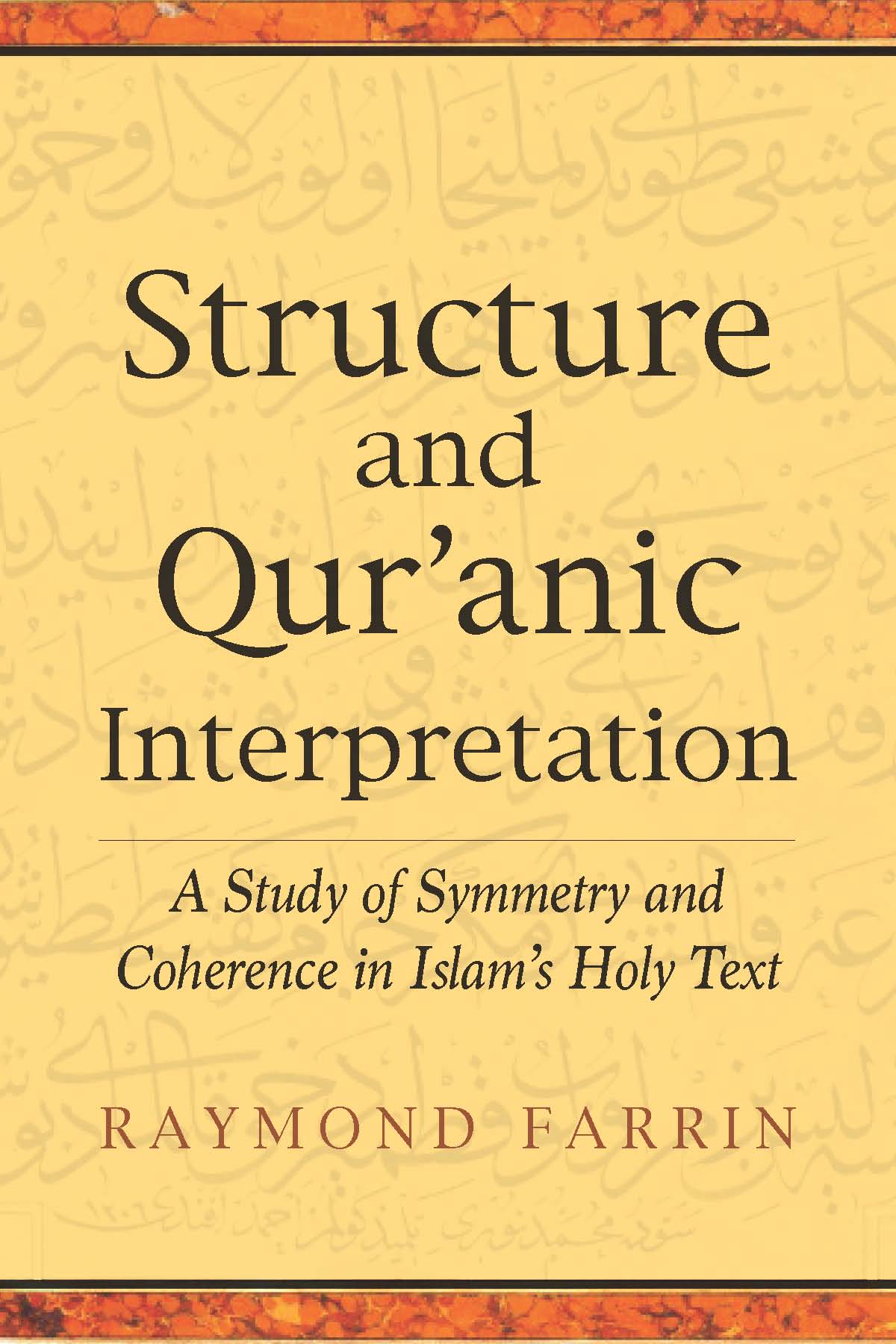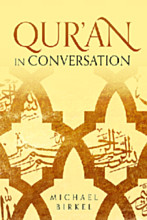New Book: Structure and Qur’anic Interpretation
by Raymond Farrin*
 Structure and Qur’anic Interpretation: A Study of Symmetry and Coherence in Islam’s Holy Text (Ashland, OR: White Cloud, 2014) is a groundbreaking literary approach to the Qur’an that draws on classical Arab sources and contemporary literary theory. Farrin demonstrates how the Qur’an, often regarded as unsystematic, in fact features a comprehensive design, one characterized by a network of symmetries. He asserts that the Qur’an possesses “a magnificent design” and an impressive coherence. Specifically, Farrin’s analysis of the Qur’an discloses how the principle of symmetry—manifesting in parallel, chiastic, and concentric constructions—holds the text together.
Structure and Qur’anic Interpretation: A Study of Symmetry and Coherence in Islam’s Holy Text (Ashland, OR: White Cloud, 2014) is a groundbreaking literary approach to the Qur’an that draws on classical Arab sources and contemporary literary theory. Farrin demonstrates how the Qur’an, often regarded as unsystematic, in fact features a comprehensive design, one characterized by a network of symmetries. He asserts that the Qur’an possesses “a magnificent design” and an impressive coherence. Specifically, Farrin’s analysis of the Qur’an discloses how the principle of symmetry—manifesting in parallel, chiastic, and concentric constructions—holds the text together.
This principle of symmetry obtains on the level of the chapter, the chapter pair, the chapter group, the group system (each system containing numerous chapter groups), and the Qur’an as a whole. Structure and Qur’anic Interpretation, aimed both at readers familiar with the Qur’an and at those opening it for the first time, differs from other books on the Qur’an in that it reveals the text’s fundamental, symmetrical organization. Moreover, through readings of key Qur’an chapters, Farrin shows how structure serves as a guide to interpretation. Indeed, one finds that the Qur’an’s structure again and again points to universal messages of an ethical nature, rather than to messages whose application may be limited to a specific context. In addition, the book makes a contribution to Qur’anic studies by highlighting literary evidence indicating that the Qur’an was compiled by one author (in all probability, the Prophet Muhammad) and not by an official committee.
* Raymond Farrin is associate professor of Arabic and chair of the Department of Arabic and Foreign Languages at American University of Kuwait.
© International Qur’anic Studies Association, 2014. All rights reserved.

